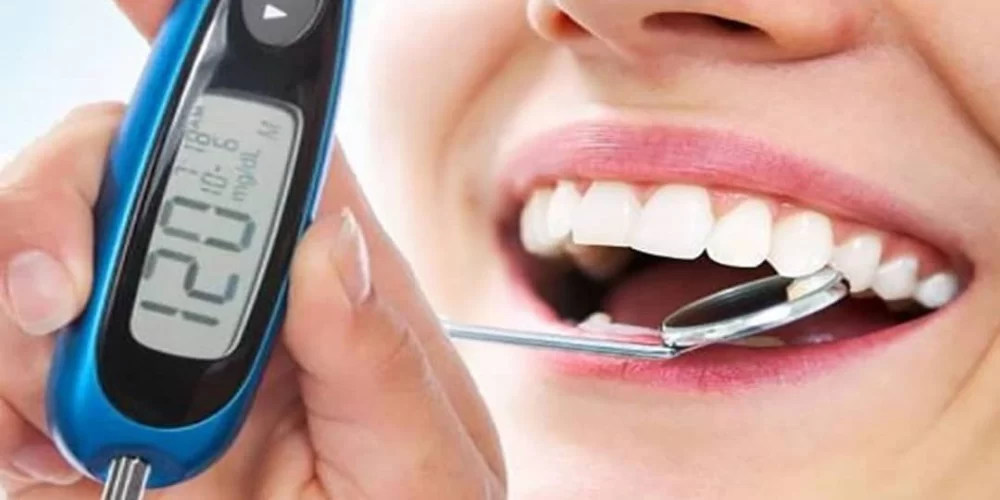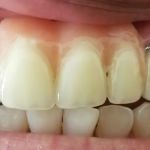
The Connection Between Oral Diseases and Diabetes Management
- The Link Between Diabetes and Oral Diseases
- How Diabetes Affects Teeth and Gums
- Oral Health Challenges Faced by Diabetic Patients
- Preventing Oral Diseases in Diabetic Patients
- Diabetes Care and Effective Dental Tips
- Managing Oral Health While Managing Diabetes
- Oral Care Products for Diabetic Patients
- Explore Diabetes-Friendly Dental Products
1. The Link Between Diabetes and Oral Diseases
Diabetes can have a profound impact on oral health. Elevated blood sugar levels can lead to dry mouth, gum disease, and increased risk of infections. Additionally, uncontrolled diabetes can make it harder for the body to fight infections, which can lead to complications like gum disease (periodontitis). Understanding the connection between oral diseases and diabetes is key to effective management of both conditions. Managing blood sugar levels is not only essential for diabetes control but also critical for maintaining healthy teeth and gums.
2. How Diabetes Affects Teeth and Gums
When blood sugar levels are poorly controlled, the excess sugar in the saliva creates an environment conducive to bacterial growth. This bacteria can lead to plaque buildup, causing gum inflammation, tooth decay, and even more severe conditions like periodontal disease. People with diabetes are more likely to experience gum disease, and this can result in tooth loss if not properly managed. Additionally, high blood sugar can impair the body's ability to heal wounds, making it more difficult to recover from oral infections.
3. Oral Health Challenges Faced by Diabetic Patients
Diabetic patients often face several oral health challenges. These include a higher risk of developing gum disease, dry mouth (which can lead to tooth decay and mouth infections), and a slower healing process after dental procedures. Individuals with diabetes also tend to have a higher likelihood of developing fungal infections like thrush. The difficulty in controlling blood sugar levels can exacerbate these issues, making it crucial to adopt both proper oral care and consistent diabetes management.
4. Preventing Oral Diseases in Diabetic Patients
Preventing oral diseases in individuals with diabetes involves maintaining good oral hygiene practices and managing blood glucose levels effectively. Regular brushing with fluoride toothpaste, flossing, and using mouthwash can help prevent plaque buildup and gum disease. Diabetic individuals should visit the dentist regularly to detect early signs of oral diseases. Tight control over blood sugar levels also reduces the risk of developing infections and promotes better healing of the gums.
5. Diabetes Care and Effective Dental Tips
Proper diabetes care goes hand in hand with maintaining oral health. In addition to keeping blood sugar levels under control, diabetics should be mindful of their diet. Avoid sugary foods and drinks that can contribute to tooth decay. Chewing sugar-free gum can help increase saliva flow and reduce dry mouth. Staying hydrated and avoiding tobacco products are also essential for maintaining healthy gums and teeth. If you wear dentures, it's crucial to clean them regularly to avoid infections and irritations.
6. Managing Oral Health While Managing Diabetes
Managing oral health while dealing with diabetes requires a proactive approach. It’s essential to establish a routine that combines daily oral hygiene practices with regular medical and dental checkups. Monitoring blood sugar levels is critical, but diabetics should also watch for early signs of oral health problems such as swollen or bleeding gums, dry mouth, and persistent bad breath. Early detection and intervention can prevent serious oral health complications.
7. Oral Care Products for Diabetic Patients
For diabetics, choosing the right oral care products can make a significant difference in preventing oral diseases. Look for fluoride toothpaste that helps prevent cavities and strengthen enamel. Antibacterial mouthwash can help reduce plaque buildup and keep your gums healthy. Special dental tools, such as soft-bristled toothbrushes, can be gentler on the gums, which is particularly important for those with gum disease. Consider using sugar-free gum to combat dry mouth and stimulate saliva production.
8. Explore Diabetes-Friendly Dental Products
If you're managing diabetes, it’s important to use dental products specifically designed to meet your needs. Many brands offer dental products that help control bacteria, reduce gum inflammation, and promote healing. To find the best products for your oral health, click here to explore our range of diabetes-friendly oral care products. Take charge of both your diabetes and oral health today!







 Rush Family Dental5.0 (161 review)
Rush Family Dental5.0 (161 review) Lafayette Hill Family Dentistry4.0 (5 review)
Lafayette Hill Family Dentistry4.0 (5 review) Steven J. Moravec, DDS, MS4.0 (189 review)
Steven J. Moravec, DDS, MS4.0 (189 review) Sunnyvale Pediatric Dentistry and Orthodontics4.0 (365 review)
Sunnyvale Pediatric Dentistry and Orthodontics4.0 (365 review) New Millennium Dental Group3.0 (30 review)
New Millennium Dental Group3.0 (30 review) By Design Dental4.0 (52 review)
By Design Dental4.0 (52 review) The Importance of Oral Health Education During Pregnancy for a Healthy Pregnancy
The Importance of Oral Health Education During Pregnancy for a Healthy Pregnancy Best Tips for Brushing Your Teeth Properly for Healthy Gums: Essential Techniques for Oral Health
Best Tips for Brushing Your Teeth Properly for Healthy Gums: Essential Techniques for Oral Health Why Skipping Dental Checkups Can Lead to Bigger Oral Health Problems
Why Skipping Dental Checkups Can Lead to Bigger Oral Health Problems Advantages of Porcelain Dental Restorations
Advantages of Porcelain Dental Restorations How Can Diabetes Cause Tooth and Gum Problems? Preventing and Managing Oral Health Issues
How Can Diabetes Cause Tooth and Gum Problems? Preventing and Managing Oral Health Issues Healthy Habits for Promoting Good Oral Health and Hygiene: Tips for a Healthy Smile
Healthy Habits for Promoting Good Oral Health and Hygiene: Tips for a Healthy Smile